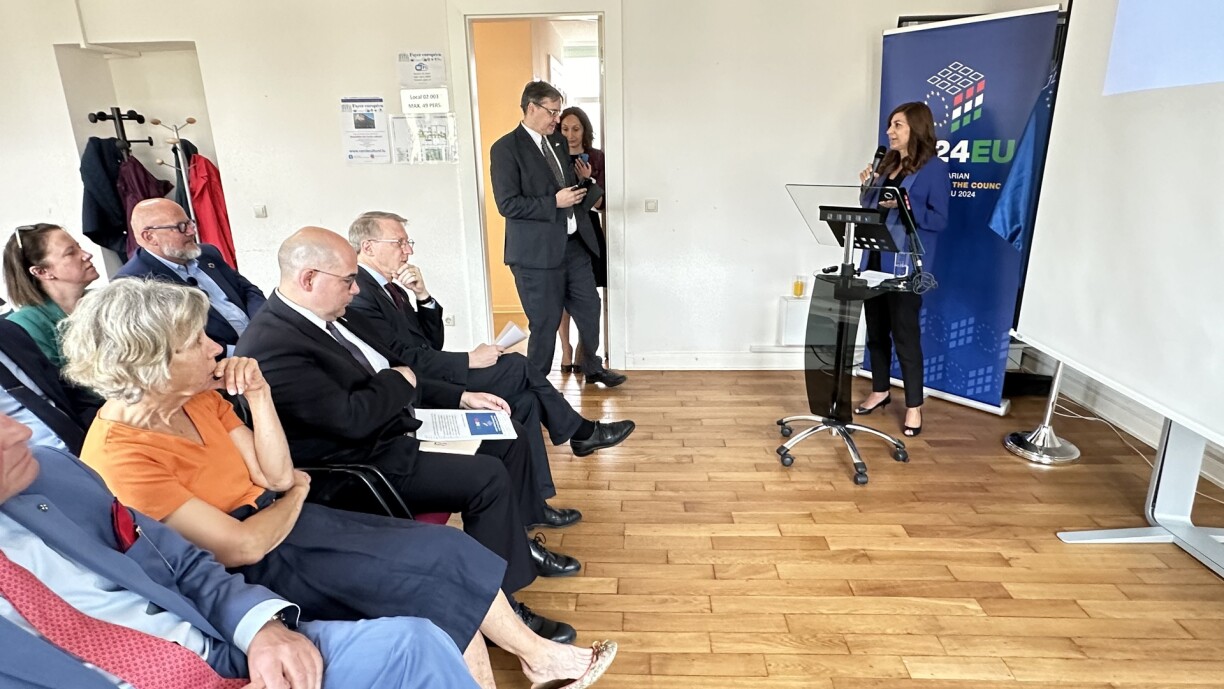
In Luxembourg, Hungarian Ambassador Tamas Kovacs was presenting the priorities of the EU Presidency when news broke of Hungarian Prime Minister Viktor Orbán’s visit to Moscow. Kovacs spoke for about 45 minutes on topics including the EU’s competitiveness, defence policy, EU enlargement, illegal migration, cohesion, agriculture, and demographic challenges, without once mentioning Ukraine. Meanwhile, Orbán’s plane landed in Moscow, creating a palpable sense of discomfort in the room when the news was revealed.
The senior diplomat highlighted that one of Prime Minister Orbán’s first trips since the beginning of the Hungarian EU Presidency was to Kyiv to meet with Ukrainian President Volodymyr Zelenskyy. Kovacs characterised the visit as “the beginning of a peace project” aimed at benefiting the welfare of the entire continent. He emphasised that peace should be the goal of the European Union, stating, “A war with no end in sight is not desirable.”
During his visit to Kyiv, Prime Minister Orbán understood President Zelenskyy’s message about wanting the Russians at the negotiation table, Kovacs said. He added that Hungary is ready to assume a mediator role to prevent further loss of life.
However, Orbán’s trip to Moscow has been poorly received by many EU partners. The timing of the visit, shortly after Hungary assumed the EU Presidency, sparked strong reactions within the EU. Critics lamented that it took only five days for Budapest to make its first misstep and stressed that the EU Presidency should act impartially. Others noted that an official mandate is required to represent the EU, which Orbán’s visit clearly lacked.
EU leaders, including Council President Charles Michel and European Commission President Ursula von der Leyen, quickly labelled Orbán’s trip as a unilateral initiative by the Hungarian government. Orbán, meanwhile, accused these leaders of passively waiting for the war to end miraculously.
MEP Christophe Hansen of the Christian Social People’s Party (CSV) condemned the visit, calling it unacceptable during times of war. Hansen highlighted that Russian President Vladimir Putin has allowed thousands of people to be killed and children to be abducted, stating, “These are war crimes, and one does not meet with war criminals.” He emphasised that for negotiations to occur, the shooting must stop, and Ukraine’s territorial integrity must be restored. “That is the first condition,” he asserted.
MEP Tilly Metz of the Green Party (déi gréng) expressed similar dismay regarding the early actions of the Hungarian EU Presidency. “This is really not the time to go down that path,” she remarked, voicing concern that Viktor Orbán’s actions are undermining the credibility of the European Union. She described the Hungarian PM’s initiative as “neither good, serious, nor responsible.”
Viktor Orbán’s pro-Russian stance is well-known, with a history of attempting to prevent sanctions against Moscow.
Hansen noted that Orbán is “a close friend” of Putin, criticising Orbán’s portrayal of himself as a mediator or peacemaker as “pure populism.” Hansen also pointed out that Orbán’s campaigns have been partially funded by Moscow.
Metz argued that Orbán’s role as a peacemaker is particularly unfitting, given his disregard for human rights and the rule of law in his own country.
Full report by RTL Télé (in Luxembourgish)